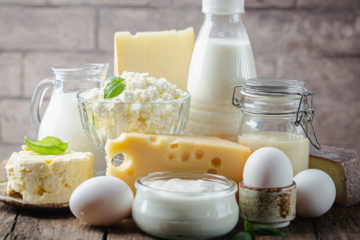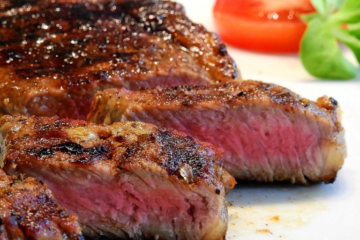I have eaten a vegan diet for almost 9 years now. Two things converted me from being a farm girl growing up on a cattle and sheep station, eating regularly the slaughtered animals we raised – to someone who ate no animal foods at all. It wasn’t that Dad raised animals inhumanely – he didn’t – our animals were spoilt for the most part – spending all their days on beautiful rolling hills of grass with lots of water in the many dams Dad built. It was not an ethical decision for me or even an environmental one. It was purely because of the sheer weight of scientific evidence that supports eating a vegan diet and its ability to improve or reverse most diseases.
Before I began a 6-week vegan trial, I worried about missing out. So I began to follow many vegan bloggers with attractive meal posts to learn how I could ‘eat vegan and not feel deprived. One day I stumbled across a blogger who was sharing her cancer journey. She thought it was just bad luck that she had cancer despite her vegan diet. This surprised me because I had read a book about a doctor who used a vegan diet as part of his protocol to halt advanced cancer in a large number of his patients. Reading the story of this blogger threw me somewhat.
Does being vegan lower cancer risk?
Preventing cancer is largely about getting enough micronutrients on board to counteract all the life stresses, environmental stresses, inevitable inflammatory foods we take in – to repair DNA damage before it moves into a tumour stage. Much study has been done into the vegan diet and cancer. Vegans tend to get cancer less than non-vegans in most studies. We know the cancer-protective effects of many plants, so this should not be a surprise.
But in 2015, the EPIC-Oxford study which followed 65000 British people actually discovered that the vegan cohort had NO LESS cancer occurrence than did everyone else (except in blood cancers and stomach cancer where they had about half the incidence of the meat eaters).
This was a blow to vegans worldwide.
Until the actual data was examined.
Looking into the EPIC study, it turns out that the vegans were consuming, on average, 20g fibre daily. Fibre is vital in carrying out cancer-causing junk (excess hormones, heavy metals, etc.). 20g a day tells a nutritionist that these people were not eating whole plant foods. A WHOLE-FOOD vegan diet typically achieves around 40g fibre a day – not 20g. Many traditional societies in the world get over 40g fibre daily from whole plant foods – and they don’t get cancer (or digestive diseases also).
My Vegan Blogger
Back to my vegan blogger with cancer: Looking back through her posts, I realised that 99% of them showcased delectable cakes and vegan treats she had developed recipes for – full of various flours and sugars. Clearly, she was experimenting with tasty recipes and presenting the best one she had created. That adds up to quite a bit of treat-eating in a week. Except that she was American, she could have been one of the subjects of the EPIC study – one of those vegans eating a diet with lots of processed food in it.
What this large study shows us is that eating a vegan diet that is high in LOW-FIBRE plant foods – processed plant foods – such as baked goods, pasta and couscous, white bread, vegan-ish meat substitutes, processed vegetable oils, sugary foods – really doesn’t do a lot of good preventing the most common cancers. A huge study of 96000 Adventists is going on now with results expected in 2024 – which should shed more light on this subject.
Fashionable veganism
We are entering a time in history where veganism is becoming fashionable. It is now easy to buy vegan recipe books; it is easy to ask for vegan food in restaurants; vegan jokes are becoming fewer now that the science is adding up – showing the last laugh will actually be on the meat-eaters:
- The Canadian government’s latest food guidelines have this year in 2019 come in on the side of science rather than agriculture, recommending a wholly plant-based diet where meat is not needed for health, to be taught in schools and public institutions.
- Several hospitals in the US must now provide vegan food for patients.
- The American food guidelines have finally removed meat from their ‘plate’ guidelines, replacing it with ‘protein’ – which includes plant protein, and replacing the dairy category with ‘milk OR soy or plant milk’.
- Several American medical schools are now including plant-based nutrition study, and medical students learn plant-based cooking as part of their weekly education.
These victories carry a risk, however. Because the food conglomerates are joining the party.
In the stores are a growing number of processed vegan foods. Vegan ‘meat’ made from gluten and processed fruit and vegetable fibres are easy to come by. It feels like meat – it tastes like meat – but it is a processed food still. Many of these foods are loaded with sugars and flours. What the EPIC study taught us is that these sorts of vegan foods are no better than non-vegan food – at least for human health. Eat at your own risk!
That’s the take home for the vegan diet – a diet LOW in micronutrients and fibre – even though animal fat and animal protein are absent – may not provide much protection from any disease, including cancer.



0 Comments